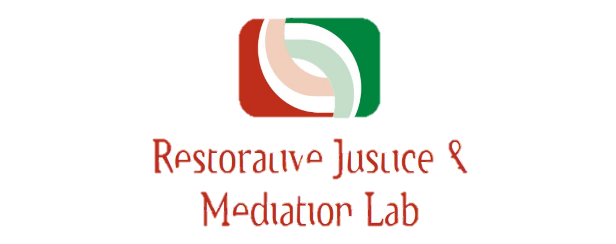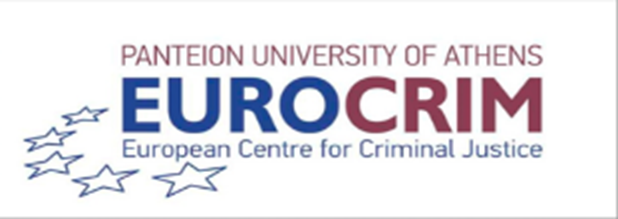
The School of Forensic Criminology (EASE) was founded in the Department of Criminology of the Department of Sociology at the School of Social Sciences of Panteion University (FEK 2978 / 31-12-2015, issue B) and covers the educational and research needs in the disciplines of Criminology and more specifically of the urban crime phenomena.
The mission of the Laboratory is:
The coverage of educational needs in the Laboratory's subjects along with the conduct of research programs, the organization of scientific events, and the publication of publications. The Laboratory seeks to collaborate scientifically with other relevant Greek and foreign academic institutions, research centers and institutes or public services, Local Government Organizations, Regions and other scientific and social actors in the study and research of issues that fall within its scope of activity. The Labaratory endeavors to support the doctoral candidates whose subject matter belongs to the subject matter of the Laboratory, with the possibility of a proposal for a scholarship and the general support of the university and scientific study and research in its scientific field.
The subject of study and research of the Laboratory includes:
- The study of the overall criminal phenomenon and its particular quantitative and qualitative peculiarities in the city's environment.
- The study and investigation of the role of the structured environment and the structural and functional characteristics of the urban environment in the manifestation, forms and dimensions of crime.
- The use and development of mapping techniques and techniques geared to geographic and spatial analysis of crime.
- Empirical investigation and analysis of the quantitative and qualitative characteristics of crime according to the size of the settlement (urban centers, suburban - rural areas).
- The study of contemporary urban crime and its mapping.
- Experimental investigation and study of victimization, fear of crime and insecurity of citizens based on the place of residence / settlement size.
- The empirical investigation and theoretical analysis of the attitudes and views of the citizens towards the criminal phenomenon and the punitiveness, depending on the size of their settlement dwelling.
- The elaboration of theoretical explanatory approaches and criminality proposals that are specific to the peculiarities of urban crime.
- Making proposals for crime prevention at local level (social prevention / community prevention) and CrimePreventionThroughEnvironmentalDesign-CPTED (CrimePreventionThroughEnvironmentalDesign-CPTED).
---------------------------------------------------------------------------------------------------------------------------------------
METHEXIS LABORATORY 
The Scientific Laboratory of METHEXIS [Study on the Migration of Population Groups (Refugees-Immigrants-Diasporas), Intercultural Relations and Radicalization] was established at the end of 2017 (Decision No. 61 of the Government Gazette 4646 / 29-12-2017) and belongs to the Department of Social Morphology Department of Sociology. The scientific focus of the workshop is on issues dealing with the mapping, study and analysis of the phenomenon of migratory refugees from and to Greece from the 19th century to the present, participation in issues concerning intercultural education, understanding the phenomenon of radicalization and its impact on social cohesion as well as on participation in training and research dealing with the protection and safety of migratory population groups from natural and man-made filament disasters and crises.
The Director of the Laboratory is Professor Gerasimos Karampelias.
Website: https://methexi.panteion.gr/
---------------------------------------------------------------------------------------------------------------------------------------
It is the organizational, epistemological-theoretical and practical experience that has accumulated through its activities in other similar institutions of Greece and abroad, the members of the Teaching and Research Staff and the young scientists who are staffed and come mainly from the Department Sociology of Panteion University.
Indicatively, the Laboratory places at the center of its theoretical and practical (educational) activity:
The way of establishing and operating education as a global structure in modern Greek society.
The social, historical and aesthetic aspect of artistic creation.
The cultural orientations of Greek society and their contribution to problem management by the individual social groups.
The sentiments of education and culture in the historically meaningful performance of social institutions connected with politics, religion, health, etc.
The promotion of the Greek cultural paradigm in the spaciousness of the Eurasian environment and the undertaking of various actions that make the history of the Greek presence more conscious in this old internationalized cultural environment
Website: https://rusc.panteion.gr/
---------------------------------------------------------------------------------------------------------------------------------------
Laboratory of Modern Communication in Europe (EMME)
The Laboratory of Contemporary Communication Studies in Europe is mainly active in the following areas:
1. The study of communication phenomena in contemporary everyday life. Particularly, the parameters that make up the European communication framework (SMEs and media in general, but also communication structures within institutions, organizations, and developing forms of social and social interconnection in the European area).
2. The analysis of forms of political communication in Greece and Europe, as well as the formed communicative culture, which influences the attitudes and convictions of both 'political' and 'daily' reality.
3. The analysis of communication messages (emissions and means), which reflect the dominant representations (as well as the 'mapping' of these representations).
4. The resulting 'representations' on contemporary problems (crisis, Greek-European identity), social relations (prevailing values and priorities, but also relations with European partners, but also with 'diversity' eg refugees, immigrants) currently operating in the context of reclassifications and deep adjustments.
5. Exploring the influence of the 'communication framework' in areas such as education (in particular in the institution of higher education and higher education), the relationship of knowledge with the 'market', with the aim of proposing reforms that would help remove the existing mentality, and European integration.
6. Exploring (in the context of the communication system) the factors that make it difficult to overcome some rural attitudes (but co-exist with the superficial embrace of modern values): assuming that 'development' conditions do not rely solely on 'economy'.
7. The research approach of the 'values of Greekness' (eg the institution of the family or 'orthodoxy' and what they represent (and in relation to the European Union).
8. The processing of existing theoretical proposals on specific social phenomena and the confirmation or partial / total appeal based on focused empirical research.
9. Make suggestions to highlight the specific field of research and compare it with other examples.
10. In general, undertake all kinds of scientific initiative and activity in the field of Sociology of Communication, Knowledge and Culture, which can:
a. to facilitate the work of the Department of Sociology, the Department of the School of Social Sciences and the University in general,
b. to promote the linkage of teaching and scientific research with applied strategies, practices and policies, as well as linking academic space with society.
11. Cooperation with research or university institutes, centers and agencies in Greece and abroad, dealing with similar issues.
12. The provision of consultancy and educational services to any interested organization on issues relating to the field of the modern European communication system (communication, knowledge and culture).
13. For the fulfillment of its purposes, the Laboratory may establish a library and record of material, acquire the necessary equipment, develop research programs, organize conferences and other scientific events, publish books or magazines and develop any other legitimate activity with its aims, to coordinate groups of volunteer students of the University and others.
---------------------------------------------------------------------------------------------------------------------------------------

The Center of Studies of the Contemporary Communication in Europe (EURCECOM) is founded on December 29 th 2017 (Government Gazette 4646) and belongs to the Department of Sociology. It studies communicational issues of the contemporary everyday life and more precisely of the parameters composing the European communicational frame (the media but also all the communicational structures in institutions, organizations and developing features of sociality and social link in European area). It aims to relate teaching and research with policies and
practices and to connect academic sociology with society.
The Center is directed by a Professor of the Department of Sociology, with international scientific expertise on the domain of Sociology of Communication,
Knowledge and Culture with three yearly office which can be renewed. Since 2018, Director of the Centre is Professor Christiana Constantopoulou (Government Gazette 278, 30/4/2018).
---------------------------------------------------------------------------------------------------------------------------------------
RESTORATIVE JUSTICE AND MEDIATION LAB

The Restorative Justice and Mediation Lab founded and directed by Professor Dr. Vasiliki Artinopoulou in the Sociology Department of Panteion University of Social and Political Sciences (Athens, Greece) since 2015.
The Lab aims at promoting research and public policies in Restorative Justice, Criminology, Victims Rights, Human Rights and Criminal Justice System.
The main activities of the Lab are focused on developing research projects, training activities in stakeholders and professionals of the criminal justice system and raising awareness on restorative justice, victims rights, rule of law and criminal justice system.
A group of Ph.D. researchers, post –graduate and undergraduate students support the activities of the Lab as volunteers.
Email: This email address is being protected from spambots. You need JavaScript enabled to view it.
---------------------------------------------------------------------------------------------------------------------------------------

The European Center for Criminal Justice – EUROCRIM is an independent educational and research Laboratory within the School of Social Sciences of Panteion University of Athens. EUROCRIM’s mission is to support research, education and the design and implementation of criminal policies and policies for the protection of human rights and the promotion of security within the framework of the European Area of Freedom, Security and Justice. EUROCRIM conducts research in the following fields:
- Criminal Law
- Criminal Policy and Criminology
- Human Rights
- European and International Law
- Corporate Law and Compliance
- Sustainability
- Youth Empowerment
EUROCRIM has developed a strong expertise on:
- a) Economic and Financial Crime
- b) Organized Crime
- c) Corruption and Fraud
- d) Money Laundering and Corporate Compliance
- e) Cybercrime
- f) Human Rights Protection with an emphasis on gender violence, racism, xenophobia, homophobia, and other forms of intolerance.
- g) Criminality related to migration and refugees (crimmigration, trafficking, migrant smuggling).
As an independent University Centre of Excellence we develop proposals and facilitate knowledge exchange on issues related to crime and criminal policy. We offer expertise in the delivery of teaching, research and consultancy in crime related issues.
EUROCRIM΄s Director is Ass. Professor Dimitris Ziouvas (This email address is being protected from spambots. You need JavaScript enabled to view it.)
Email: This email address is being protected from spambots. You need JavaScript enabled to view it.



